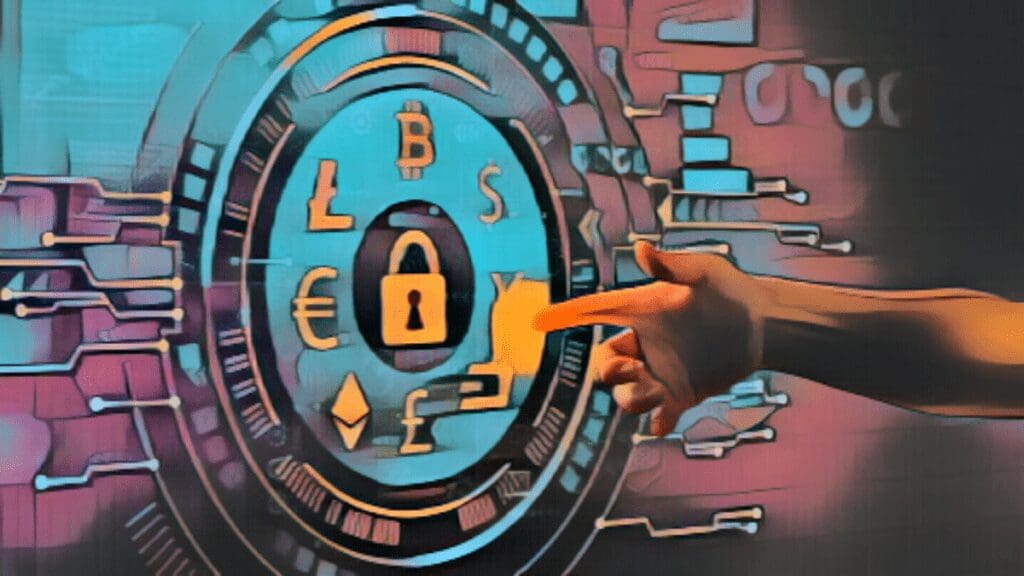You are your own bank when using Bitcoin and other cryptocurrencies. The biggest drawback of digital currencies, in contrast to traditional banking, is that, once they leave your wallet, there is no way to get them back.
In this world of cryptocurrency, if you lose your private keys, you may lose your BTC forever. There isn’t any insurance.
To strengthen the security of your cryptocurrency holdings, you should take all the necessary measures. You can engage in a variety of measures to ensure the security of your Bitcoin and other cryptocurrencies. In this article, we have explained the top guidelines that you must be aware of and follow.
Top 10 Bitcoin Security Tips That You Need To Know
1. Storing Private keys offline
It should be obvious without any clarification that a private key is an absolute crypto lifeline and shouldn’t be known to anyone you deem untrustworthy. To keep them safe, you can store them on a Bitcoin cold storage, like a computer with no internet connection.
This way, it would help you not fall prey to hacker attacks and malware. Other than this, private keys can be safely stored on special hardware or a piece of paper called a cold wallet, the same as a USB key.
2. Using Dedicated hardware
One can use a dedicated USB key to move data from your online to the offline computer. This is to lessen its exposure to potential hackers or viruses. Some users even take a step further and dedicate the whole offline computer to using it as an offline wallet.
3. Making Use of Hardware Wallet
One may already know this; however, using a hardware wallet is the safest way to store digital currency. This wallet uses an encrypted USB key with an onboard computer running in its unique operating system dedicated to operating a Bitcoin wallet.
The most famous Bitcoin hardware wallets are:
4. Securing Your PC
You need to understand that your antivirus software is the latest and up-to-date and has efficient security features. It only takes just one security susceptibility to have your computer hacked. For this purpose, you should be vigilant every time, avoid harmful websites, and learn as much about cybersecurity as possible.
5. Using Linux
This might sound like most the hacker in a bad movie would say; however, it is quite true that using the Linux operating system is safer. Linux has the best record of avoiding any USB-based attacks; therefore if you can use it for transferring Bitcoin-related transactions from online to offline computers.
6. Making Backups
There is a well-known saying, “don’t put all your eggs in one basket.” This applies to keeping your Bitcoin safer and secure. Keeping it in a secure place, a backup of your cryptocurrency wallet might save you from many hardware failures, human errors, and other unpredictable accidents. Also, it will enable you to restore your wallet efficiently in case your laptop or phone gets stolen.
7. Protecting your identity
It is commonly observed that violent attacks on Bitcoin holders at gunpoint are increasing daily, so keeping a low profile on your trading activities and investment holdings would be efficient.
In one of the recent cases, there is a 38-year-old Dutchman who was tortured with a drill in an act for stealing his crypto holdings. Hence, anonymity and privacy are good for your crypto holdings and your well-being and safety.
You need to ensure not to be involved in any personal details that can be used to access personal information such as email addresses, PINS, phone numbers, passwords, etc. Not even the common backup questions like the name of your first pet or your school’s name .
8. Using an Escrow Service
When you need to buy or sell something and aren’t certain who is on the other side, you can use an “escrow service for security purposes.”
In such cases, the person who wants to make the payment sends their Bitcoins for the escrow service while they wait to receive the item they tend to buy. In the meantime, the seller knows their money is safe with the escrow service and sending the agreed item.
When the buyer gets the merchandise, they notify the escrow service to finalize the payment. In this way, both the seller and buyer stay safe.
9. Using Two Factor Authentication (2FA)
An additional layer of security is essential regarding cryptocurrency security. Though it may be difficult and exhausting to go through the authentication process every time, it is far better off than losing your digital coins.
2FA includes a second layer of protection wherein after you enter the passwords or the transaction details, the system sends in a verification code on your trusted device; therefore, it becomes very challenging for hackers and criminals to intervene and steal your funds.
10. Using MultiSig
This is another additional step made primarily for corporate users; however, anyone can use it. To complete the transaction, many people need to sign to allow it, and the potential for the inappropriate use of funds is minimized.
Many wallets use MultiSig support:
- Electrum
- Armory
- Xapo
- Coinbase
- GreenAddress
Wrapping Up
There you go!
These are the ten tips you need to remember for your security regarding Bitcoin trading. This way, you would be safe from theft, losses, hack attacks, and other risks.
While securing a BTC wallet needs a slightly different approach, it should be easy to accurately follow the above mentioned steps. It would be best if you educated yourself, started implementing ways to maximize your privacy security, and stayed safe on all the devices you use for crypto trading.

